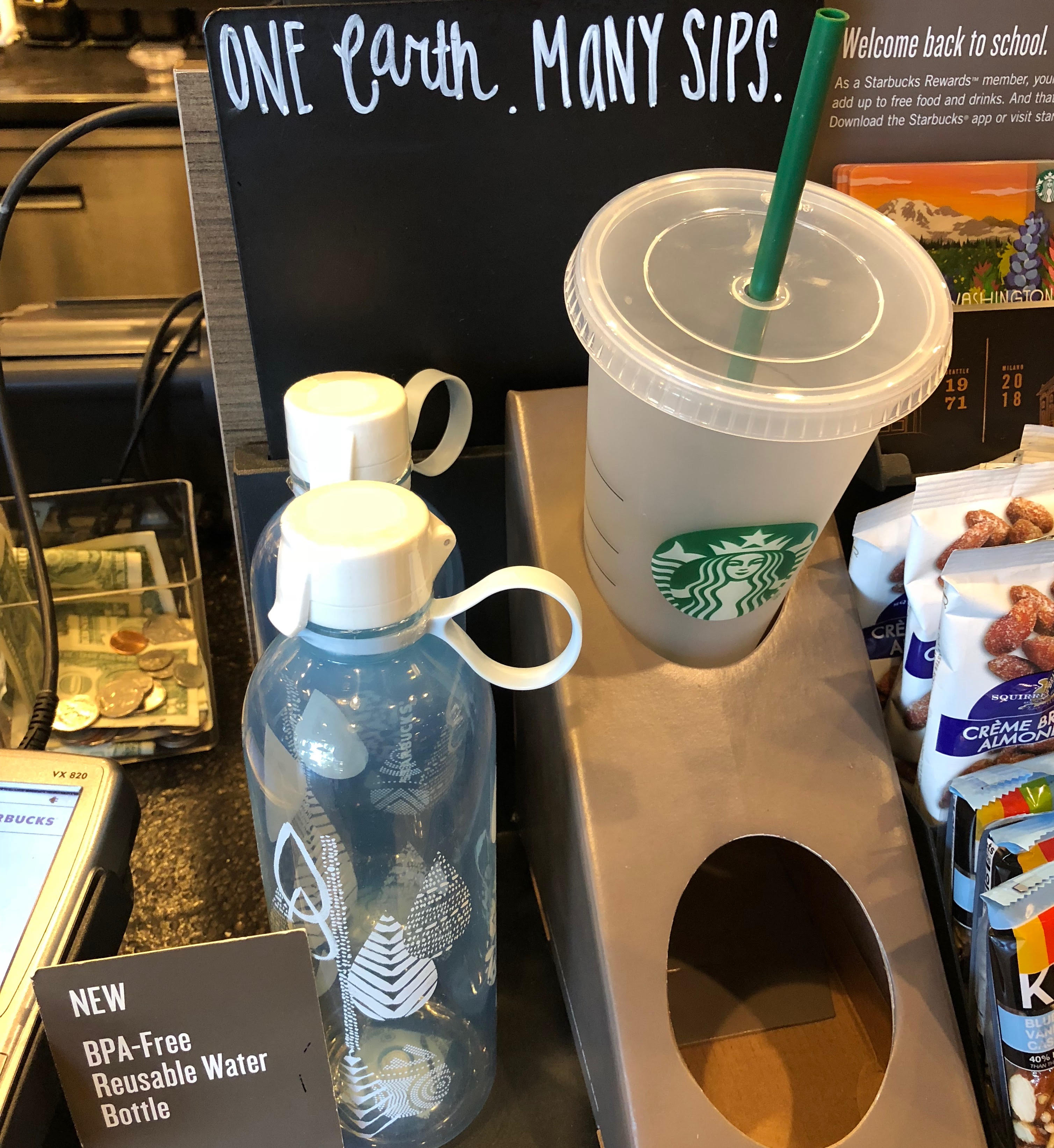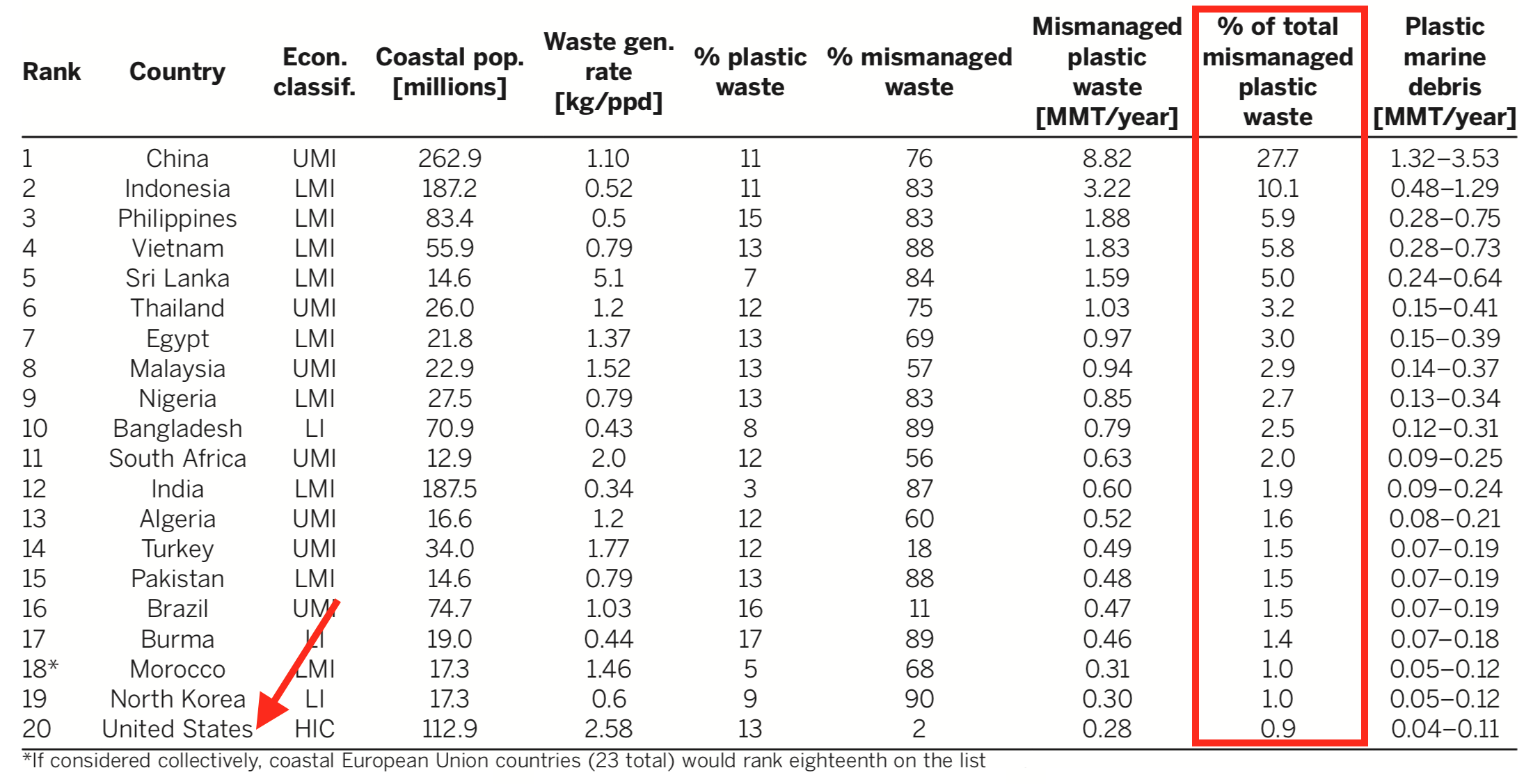
In their endeavor to appeal to Millennials and other young people, companies are engaging in marketing campaigns that look and sound good but actually accomplish nothing. We call this do-gooderism.
Recently, we discussed the case of WeWork, which will no longer expense meals for employees if they eat meat in a ridiculously misguided attempt to heal the planet. But they are hardly the only company to behave this way. Starbucks is another perpetual offender.
At the local Starbucks in my neck of the woods, I came across two blatantly unscientific ads at the counter. (See photo.)
Starbucks' Pseudoscience
 The first deception is the statement, "One Earth. Many Sips." It is positioned strategically next to a reusable plastic cup and straw. The implication is that disposable straws are destroying the planet, so customers should buy this overpriced cup and straw, instead.
The first deception is the statement, "One Earth. Many Sips." It is positioned strategically next to a reusable plastic cup and straw. The implication is that disposable straws are destroying the planet, so customers should buy this overpriced cup and straw, instead.
But the notion that disposable plastic straws are destroying the environment has been thoroughly debunked by multiple news outlets. For instance, according to Bloomberg, the absolute worst-case scenario is that straws "account for about .03 percent of the 8 million metric tons of plastics estimated to enter the oceans in a given year." The real problem? Fishing gear.
Also, the United States is not responsible for the plastic pollution in our oceans. Africa and Asia are. According to a paper published in 2015 in the journal Science, the United States is the 20th worst plastic polluter in the world, contributing a measly 0.9% of global mismanaged plastic waste.

The second deception is in the ad for a "BPA-free" reusable water bottle. There is absolutely nothing wrong with BPA. At the concentration to which humans are routinely exposed, it is not possible for it to be an endocrine disruptor because the molecule has an extremely weak affinity for endocrine receptors. How weak? According to our chemist, Dr. Josh Bloom, BPA binds estrogen receptors about 10,000 times weaker than estradiol (the major female sex hormone).
Additionally, Starbucks is dabbling with organic coffee. But organic farms are about 20% less efficient than conventional ones. They also use more land and don't decrease their carbon footprint. These reasons are partially why a new study in Nature Sustainability says that conventional high-yield farms are better for the environment than low-yield farms. In other words, going organic is the least sustainable choice for the environment.
Will People Ever Learn?
No. People want to do what makes them feel good and -- perhaps more importantly -- makes them look righteous in the eyes of others. Going organic and avoiding straws accomplishes that moral grandstanding, and companies are happy to oblige in order to make a buck. And, in the process, the companies also look good. It's a win-win for everyone, except Mother Earth.
